Compelling moments from 2015, told by UN human rights experts
Every year, the Third Committee of the United Nations General Assembly hears from dozens of experts on human rights-related issues. The experts are appointed by the Geneva-based UN Human Rights Council to examine and report back, in an unpaid capacity, on specific human rights themes. The work of the experts, 54 of whom presented their latest findings over the past two months, covers all human rights – civil, cultural, economic, political, and social.
These rights are the focus of this year’s Human Rights Day, which marks the launch of a year-long campaign to celebrate the 50th anniversary of two of the oldest international human rights treaties – the International Covenant on Civil and Political Rights and the International Covenant on Economic, Social and Cultural Rights. These two documents, along with the Universal Declaration of Human Rights, form the ‘International Bill of Human Rights,’ which together set out the civil, cultural, economic, political and social rights which are the birth right of all human beings.
Ahead of Human Rights Day, the UN News Centre spoke with seven experts during their visit to UN Headquarters in New York. We asked them to describe a defining or powerful moment they have experienced carrying out their human rights mandates over the past year.
Sheila B. Keetharuth, Special Rapporteur on the situation of human rights in Eritrea
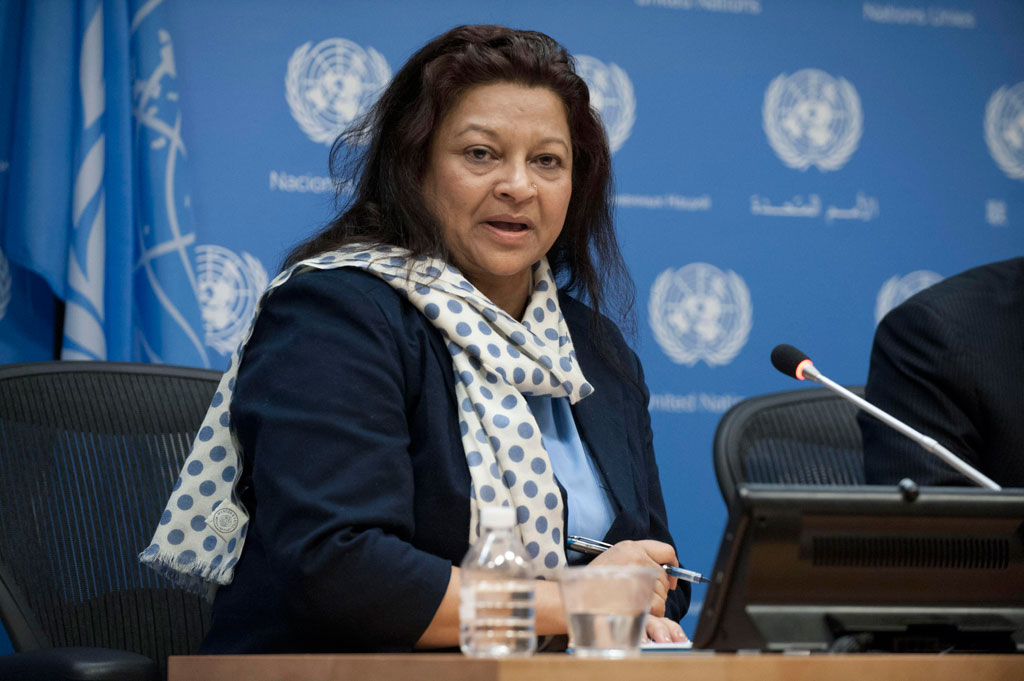
Bio: Sheila B. Keetharuth was appointed in October 2012 as the first Special Rapporteur on the situation of human rights in Eritrea. She is a human rights defender from Mauritius who has worked and travelled in mainland Africa for over two and a half decades. Ms. Keetharuth is a committed human rights advocate having extensive experience in research, advocacy, litigation and training in Africa.
It’s the children and the future of Eritrea walking away.
“One moment which was very, very powerful was when talking to unaccompanied minors leaving Eritrea. I followed their situation since 2013, when I met over one thousand in a refugee camp across the border. There were about 250 to 300 at what they call a “reception centre” before being brought to the refugee camp. From then on, I’ve carried on following those issues –why do children leave—and over time, I’ve met them further up in Tunisia, in Italy, and I got to understand that they continue moving north. What I have found is that they’re becoming younger and younger to cross the border, and secondly, many just say they leave because there’s nothing much for them in the country. That powerful realization came to me that children are the future of a country, and with the children of Eritrea walking away, it’s the children and the future of the country walking away.”
Marzuki Darusman, Special Rapporteur on the situation of human rights in DPRK
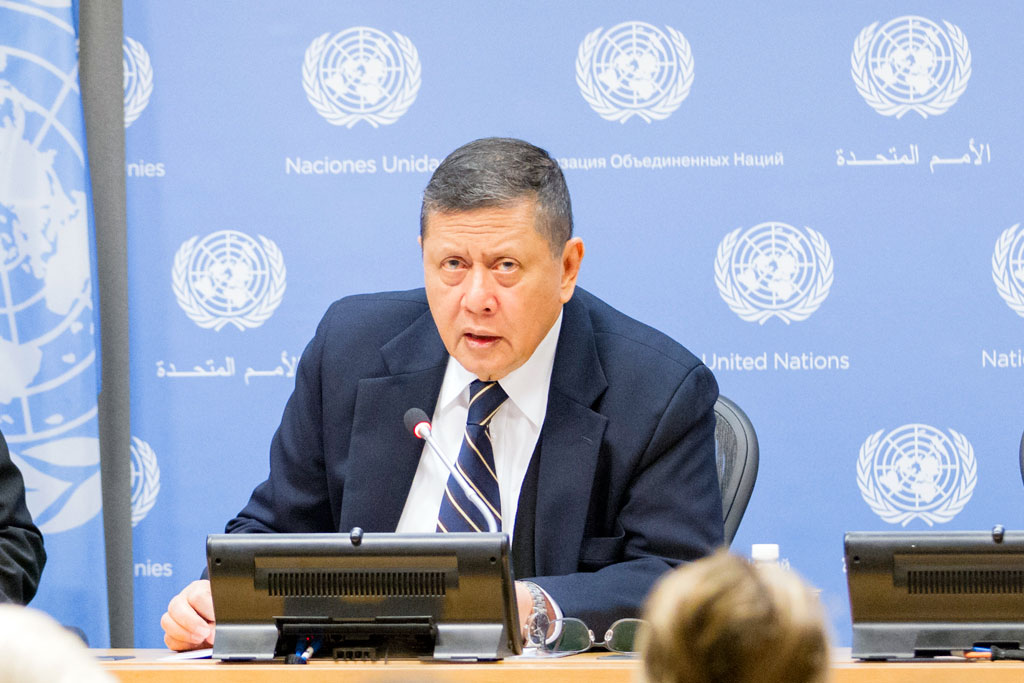
Bio: Marzuki Darusman was appointed Special Rapporteur on the situation of human rights in the Democratic People’s Republic of Korea by the Human Rights Council in 2010. He has formerly served as Chair of the Indonesian National Human Rights Commission and Attorney General of the Republic of Indonesia. In 2010, he was assigned as Chair of the UN Secretary General’s Panel of Experts on Sri Lanka.
I had a strange encounter with the North Koreans last November in New York.
“I had a strange encounter with the North Koreans last November in New York when they sought me out to try to discuss the content of the pending resolution then. That was when the delegation was in such a tight situation that they had to come out saying that if we diplomats in the UN are not able to resolve this, then the military will take over again. I think that was very telling comment on the part of the North Koreans. It gives you the sense of how things operate there in the country. That would be one the highlights in regard to how even the diplomats here would need to toe the line in terms of playing out a role that’s scripted very rigidly by the Government. My reaction was that I understood that it was not something that they made up, because going from the experience in my own country [Indonesia], there’s always this back and forth between the civilian sector and the military sector, so I thought it was quite believable.”
David Kaye, Special Rapporteur on the promotion and protection of the right to freedom of opinion and expression

Bio: David Kaye was appointed UN Special Rapporteur on the promotion and protection of the right to freedom of opinion and expression in August 2014. He is a clinical professor of law at the University of California’s Irvine School of Law. He teaches international human rights law and international humanitarian law and directs a clinic in international justice.
“Among the different visits I did over the past year, one that really stands out for me is when I went to Jakarta, in Indonesia, at the beginning of June. There’s an organization called Forum Asia. They do work on all sorts of civil society issues and human rights issues across South East Asia, the Far East, and South Asia, and they organized with a couple of other actors a conference on freedom of expression and freedom of religion.
It was really remarkable for a number of reasons. One—because people are very committed to these kinds of issues; the other is that you often hear from governments that their government is somehow different, that human rights law should be understood in the context of culture and we have cultural norms that cause us to interpret human rights obligations in a different way. Or you hear governments say human rights law isn’t effective, it doesn’t have purpose or it doesn’t have the kind of enforcement and punch that other law has. Meeting with individuals that are working day after day at the grassroots, you realize just how wrong those two things are. You realize, individuals really do believe in the power of human rights. Even when they’re existing in specific cultural contexts, their commitment and their understanding of particular norms is no different than someone in a place where human rights is a part of the constitution. And to me that’s really inspiring, but it’s also important for people outside those forums to understand that people are acting in belief that these norms apply to them and to their culture, even when their culture may have specific religious imperatives and religious norms, and that these things can coexist. To me that’s kind of amazing.
And also the idea that what we do here, whether it’s New York or Geneva, is just talk—I realize is really wrong. That even though often times it seems that we’re talking a kind of a “diplomatese” and it doesn’t resonate necessarily with people, my sense from meeting with people like at this Forum Asia, and also from our communications, is that people deeply care about what we say and we help their moral in a lot of ways, it makes them feel that they’re not alone in making those arguments, in what may be cultures that are not particularly friendly to their arguments. To me, that’s something that’s really valuable. So those are just two things over the course of the year that resonates with me.”
Christof Heyn, Special Rapporteur on extrajudicial, summary or arbitrary executions
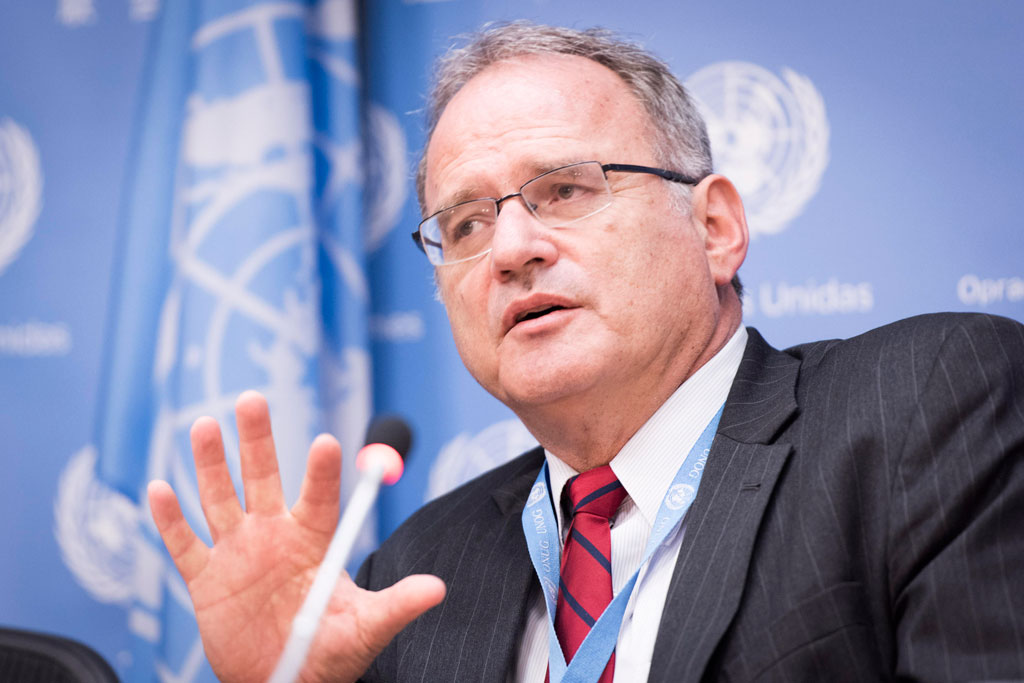
Bio: Christof Heyns was appointed as United Nations Special Rapporteur on extrajudicial, summary or arbitrary executions in August 2010. He is a director of the Institute for International and Comparative Law in Africa and Professor of Human Rights Law at the University of Pretoria, where he has also directed the Centre for Human Rights, and has engaged in wide-reaching initiatives on human rights in Africa.
“To me, the case of Sri Lanka stands out. And the resolution that has been taken in Geneva about that, in many cases, I think one has a situation where there are large scale killings, violence, and with this impunity, and for some time it looked like that was going to be the case with Sri Lanka. It’s early days now, we do not know exactly what, where this process will go, but I think it’s encouraging that the process went as far as it has gone. It is encouraging that it has not been completely imposed on the state, but the state itself is receptive to some of these ideas. And I think it’s encouraging for the system that it does not work in all cases but in some cases, the system can actually address this, and accountability is the central point really of protecting the right to life, without that it’s simply an ideal, but when one has accountability as we may have at least to some extend in Sri Lanka it’s an affirmation of the right to life. I’ve requested and I’ve asked [to go to Sri Lanka] but you need the permission of the State to go. They’ve accepted some of the other mandates, but not my mandate. But I have a standing request to the Government to visit Sri Lanka, and I’ll drop everything if they say I can go.”
François Crépeau, Special Rapporteur on the human rights of migrants
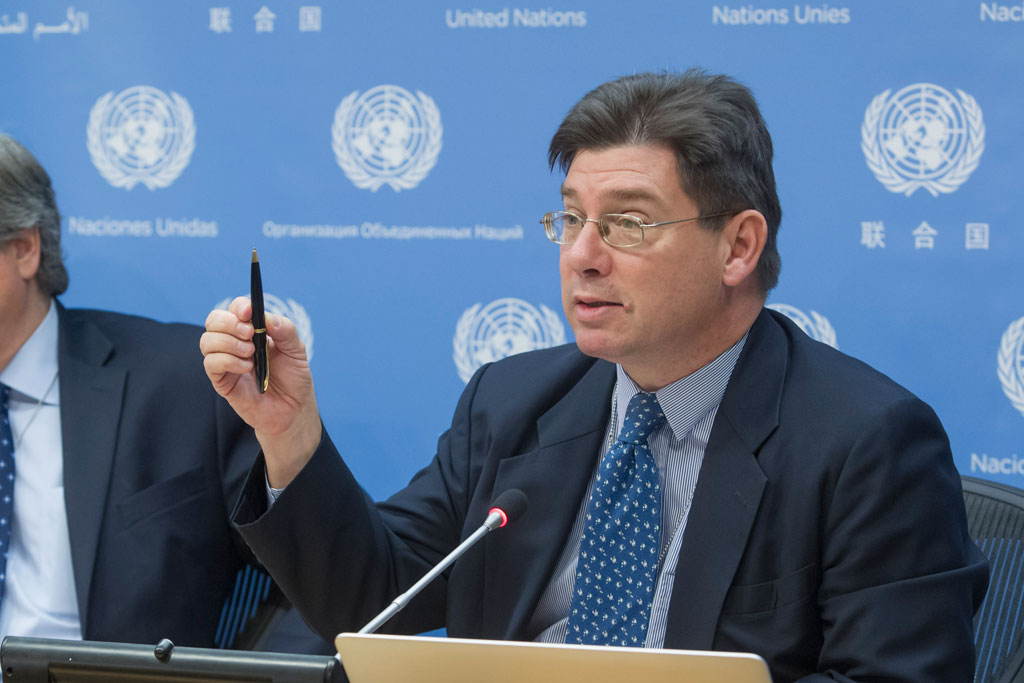
Bio: François Crépeau was appointed United Nations Special Rapporteur on the Human Rights of Migrants in 2011. He is a Professor at the Faculty of Law of McGill University in Canada, as well as a fellow of the Royal Society of Canada. He was also a Fellow of the Pierre Elliott Trudeau Foundation from 2008-2011.
“An upsetting event was the fact that I prepared for nine months, a mission to Australia. And I went to Australia three, four days in advance of the mission, because I have a daughter who lives in Sydney, and I wanted to see her, because I don’t have a chance for seeing her quite often. It’s been a nine month preparation, and we had asked the Australian government for assurances that the border force act which was adopted last July, and which threatens with two-year imprisonment any person who discloses “protected information” about what the border force does, i.e. what’s happening in Nauru, Papua New Guinea, or what the border force does on mainland Australia. And I had requested assurances that this border force act would not apply to people disclosing information to me. Under the terms of reference of Special Rapporteurs adopted in 1998, Special Rapporteurs have the rights to meet any person and go anywhere. It was pretty upsetting for me that having asked this at the end of August, having sent a letter on the 11th of September, emails before with a letter on the 11th of September. I was, I think, on 24th or 25th of September, on a Friday, met with a senior legal officer of the Immigration Department of Australia, where I repeated the request, and saying that I need a letter, some kind of letter saying that the terms of references will be respected, and the border force act will not apply to the persons testifying to me. And in the evening, that was a Friday evening, the word came from the permanent mission in Geneva that no letter would be forth coming. That was a decision taken at ministerial level, that would be no letter, and I was forced to postpone or cancel, depending on whether we can resolve that issue, the mission.
These people need to be protected, otherwise, either they won’t talk to me, which threatens my mission, that’s precisely why the terms of reference say I can talk to anyone, or they will take risks and I cannot impose that on them. I cannot, you know, create a risk for them, when I’m leaving after nine days, and I’m not going to suffer any consequences, so that was to me very upsetting. Hopefully Australian authorities will understand that I need these assurances in order to make a meaningful visit, and will offer me some kind of assurance that this will not happen, in which case I’ll go back and feel gladly.
Philip Alston, Special Rapporteur on extreme poverty and human rights
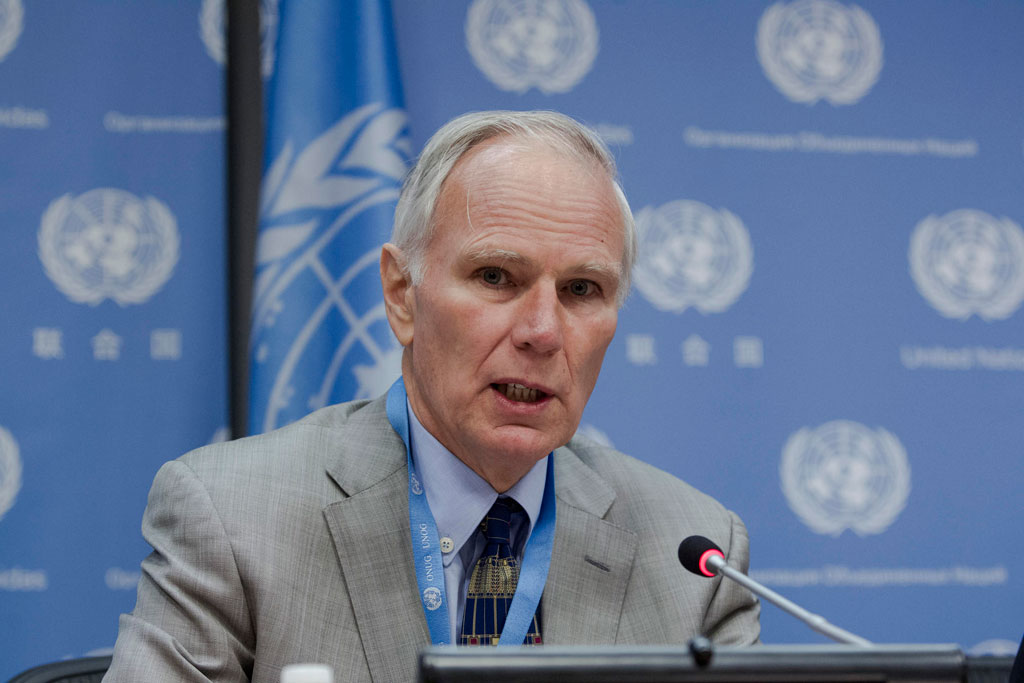
Bio: Philip Alston was appointed United Nations Special Rapporteur on extreme poverty and human rights in June 2014. Born and educated in Australia, he has a doctorate from the University of California and is an international law scholar and human rights practitioner. He also teaches law at New York University.
“I went on a mission to Chile in March of this year to look at issues around extreme poverty. What was really encouraging was the extent to which those issues are very much on the national agenda, that questions of inequality, for example, are very prominent, a big political debate. The possibility of including more specifically economic and social rights, revision of the constitution that the President has just initiated, I think that was all very encouraging. The extent to which the Government, even at the highest level—I met with President Bachelet for an hour—we talked through a lot of these issues, and I think there’s a real sense that the Government of Chile is engaged and responsive, and in many ways that’s a model for dealing with countries.
We met with a lot Chileans—I’m not saying that Chile has a perfect human rights record, there are lots of really significant issues that were raised. The need to do much more to coordinate Government responses to extreme poverty which currently remain very segmented, the situation of the indigenous peoples particularly in the south of the country remains pretty grim, and there’s great resistance to really moving that agenda forward, so there’s no shortage of issues, but every country has a lot of problems and Chile distinguished itself by showing a willingness to address them.
Ahmed Shaheed, Special Rapporteur on the situation of human rights in the Islamic Republic of Iran
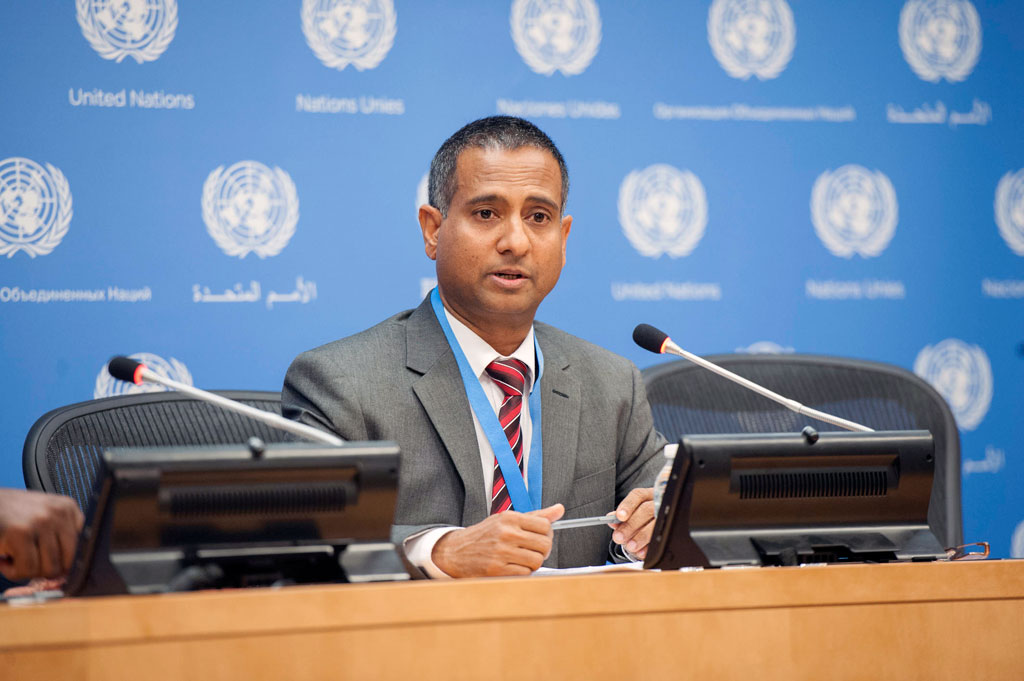
Bio: Ahmed Shaheed is the first Special Rapporteur of the Human Rights Council on the situation of human rights in Iran since the termination of the previous Commission on Human Rights mandate in 2002. Mr. Shaheed is a former foreign policy advisor to the President of the Maldives, and was Foreign Minister of the country from 2005 to 2007 and from 2008 to 2010.
The one thing that I want to stress is the scope there is for Iran for change and improvement. Now Iran has on occasion in fact gone on and done the right thing when there has been concern expressed internationally.
The most heart wrenching stories are about juvenile executions. I’ve also gathered information about early enforced marriages in the country—according to my last report, several thousand young girls have been forced into marriage, and some attribute this to the economic situation in the country. These stand out as things that have really struck me in my work.

